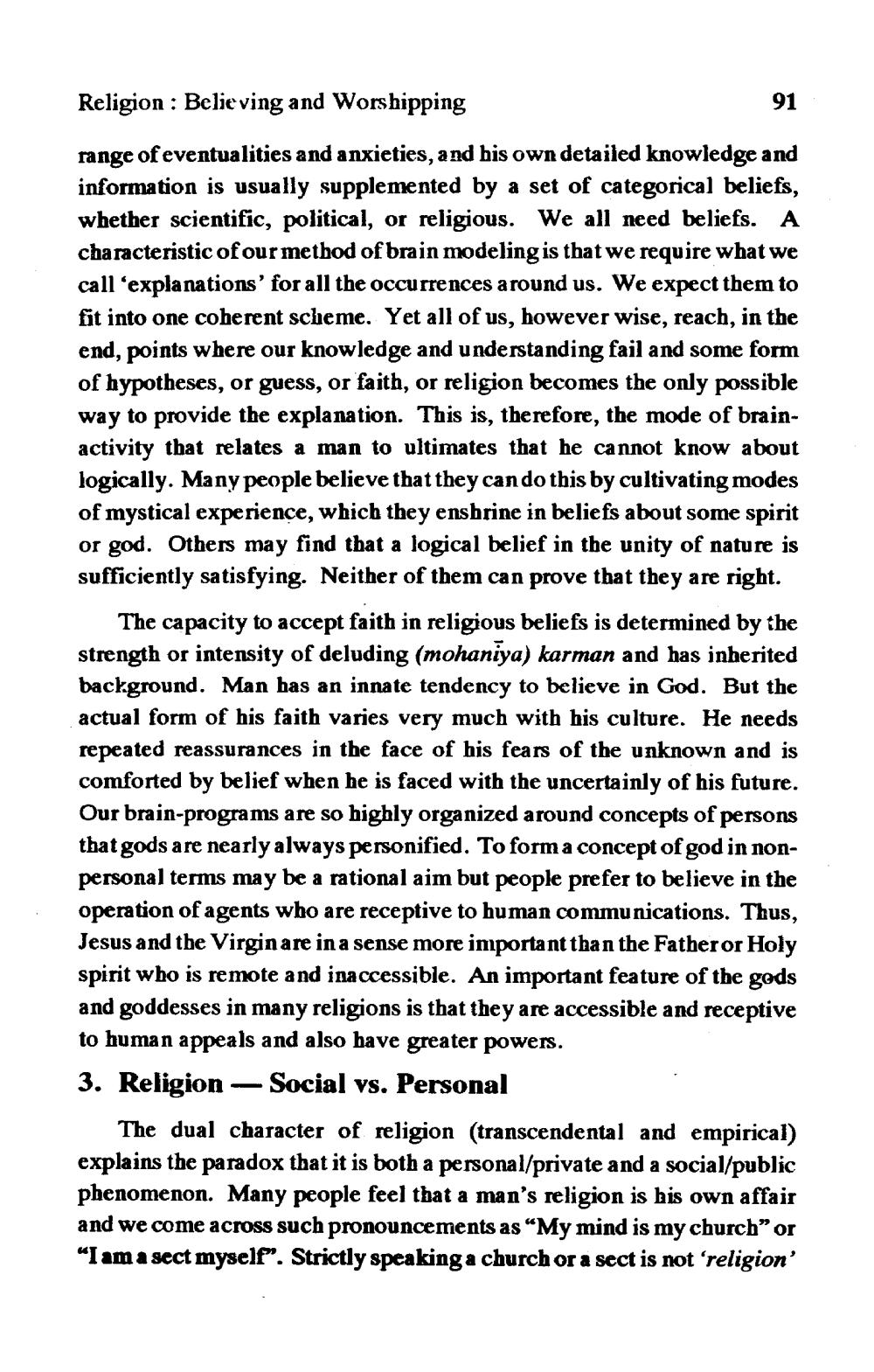________________
Religion : Believing and Worshipping
91
range of eventualities and anxieties, and his own detailed knowledge and information is usually supplemented by a set of categorical beliefs, whether scientific, political, or religious. We all need beliefs. A characteristic of our method of brain modeling is that we require what we call explanations' for all the occurrences around us. We expect them to fit into one coherent scheme. Yet all of us, however wise, reach, in the end, points where our knowledge and understanding fail and some form of hypotheses, or guess, or faith, or religion becomes the only possible way to provide the explanation. This is, therefore, the mode of brainactivity that relates a man to ultimates that he cannot know about logically. Many people believe that they can do this by cultivating modes of mystical experience, which they enshrine in beliefs about some spirit or god. Others may find that a logical belief in the unity of nature is sufficiently satisfying. Neither of them can prove that they are right.
The capacity to accept faith in religious beliefs is determined by the strength or intensity of deluding (mohaniya) karman and has inherited background. Man has an innate tendency to believe in God. But the actual form of his faith varies very much with his culture. He needs repeated reassurances in the face of his fears of the unknown and is comforted by belief when he is faced with the uncertainly of his future. Our brain-programs are so highly organized around concepts of persons that gods are nearly always personified. To form a concept of god in nonpersonal terms may be a rational aim but people prefer to believe in the operation of agents who are receptive to human communications. Thus, Jesus and the V
the Virgin are in a sense more important than the Father or Holy spirit who is remote and inaccessible. An important feature of the gods and goddesses in many religions is that they are accessible and receptive to human appeals and also have greater powers. 3. Religion - Social vs. Personal
The dual character of religion (transcendental and empirical) explains the paradox that it is both a personal/private and a social/public phenomenon. Many people feel that a man's religion is his own affair and we come across such pronouncements as “My mind is my church” or "I am a sect myself". Strictly speaking a church or a sect is not ‘religion'




